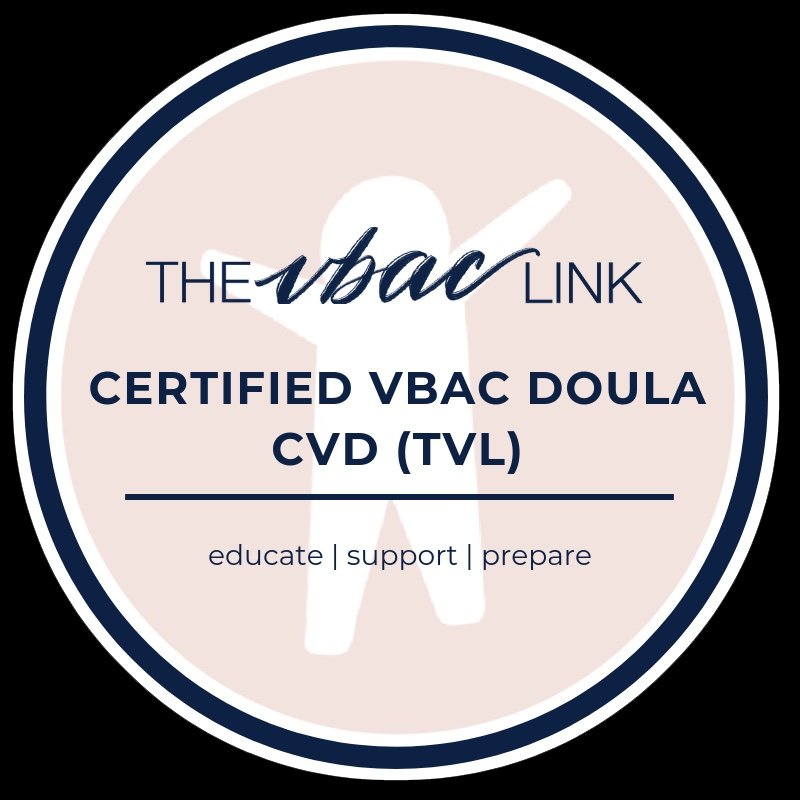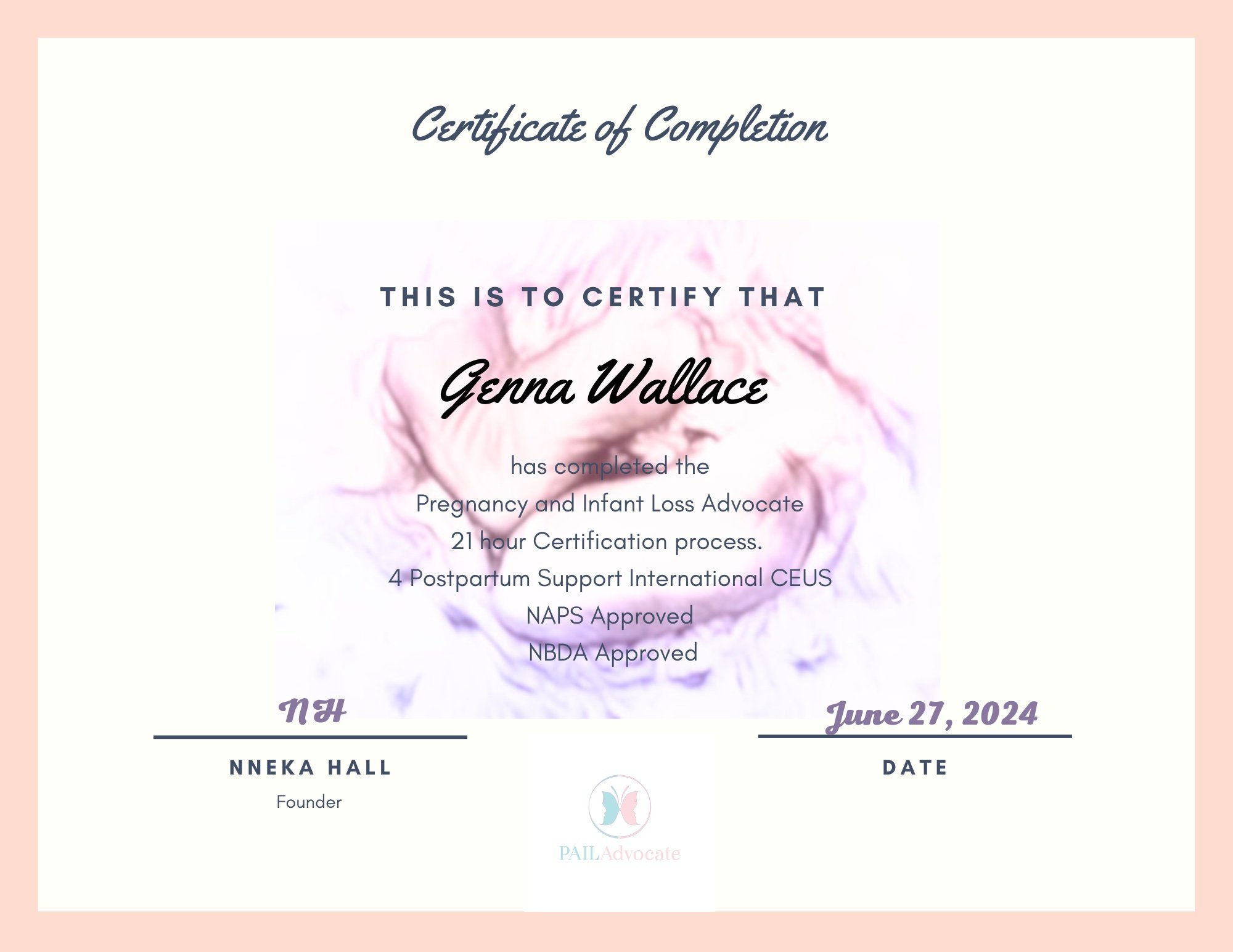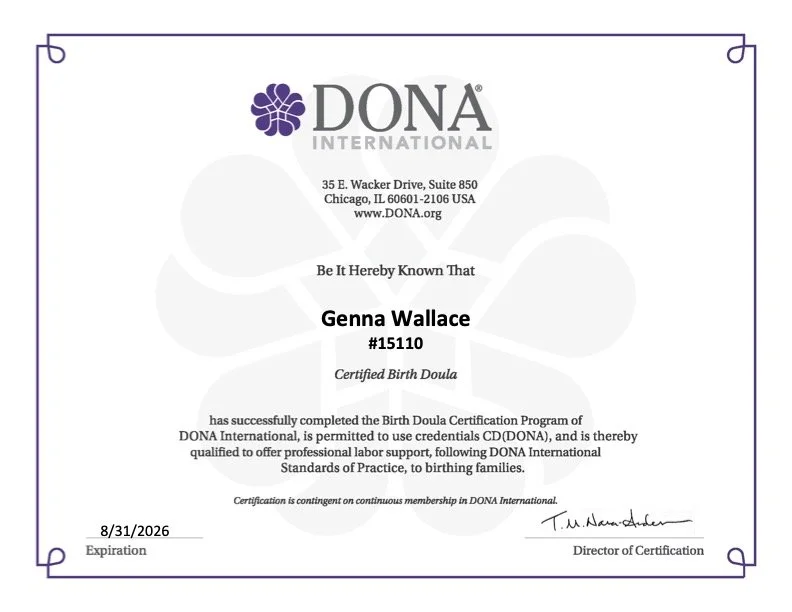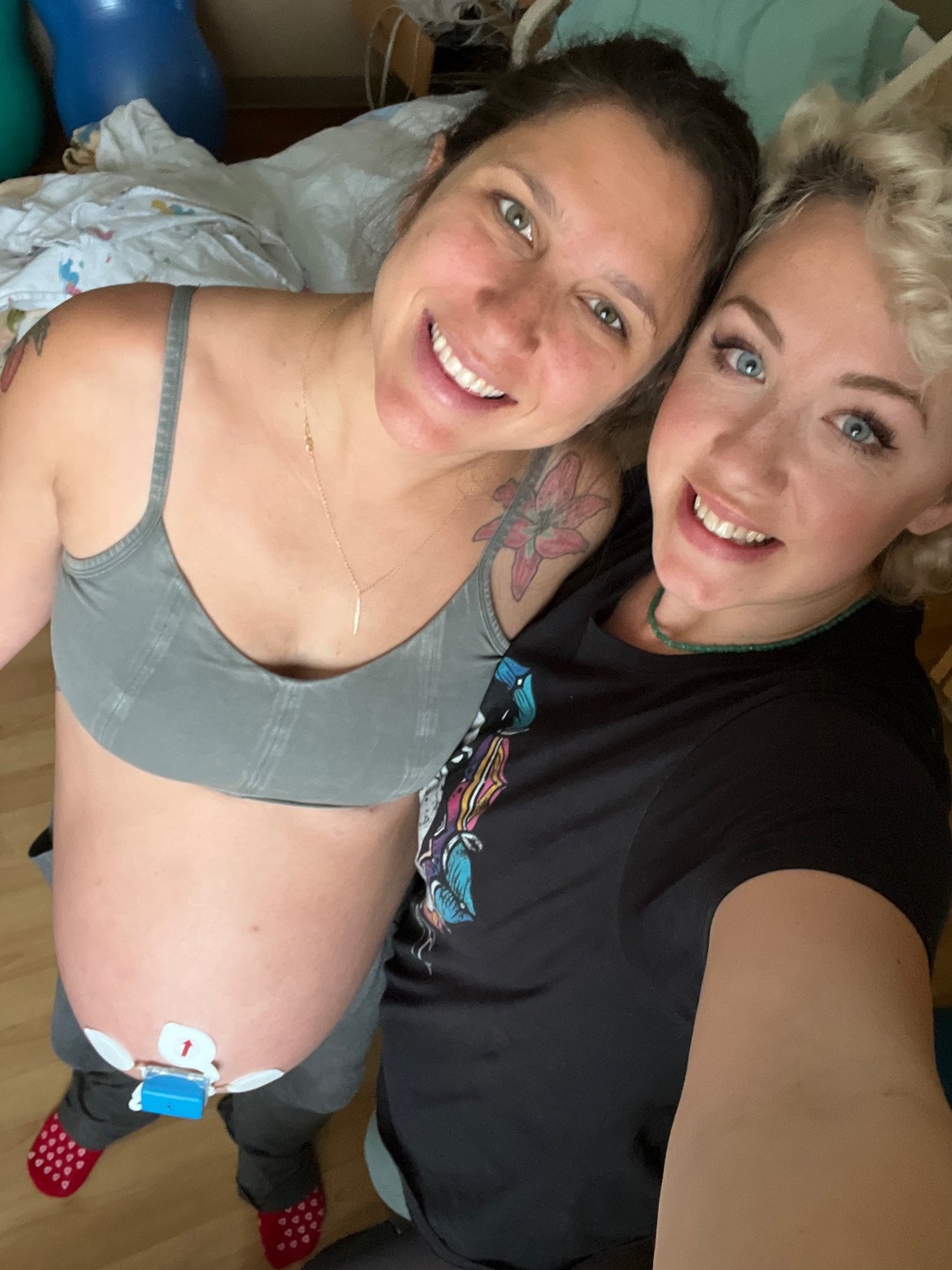Embrace the Rhythm.
Cultivate Repose.
Empower Birth.
Welcome to Rhythm & Repose Birth Services!
Genna Wallace (CD DONA) Certified Birth Doula,
PAIL-Advocate, Certified Placenta Encapsulation specialist
Owner, Birth Doula
Since 2012, Genna has been involved in supporting families through pregnancy, labor and birth. Her path began with the heartfelt experience of helping her best friend welcome her first baby into the world, and that moment sparked a passion that drives her to this day. She is committed to empowering families through education and advocacy, ensuring they feel informed and supported in all birth settings— whether in hospitals, homes, or birthing centers. Together, she hopes create a positive and enriching experience for every family during this transformative time.
In addition to her birth doula certification, Genna has continually pursued further education to enhance her skills and support for families. She specializes in the art of Spinning Babies, a technique designed to help create optimal fetal positioning for a smoother labor experience. To further empower new mothers, she has also become certified as a Placenta Encapsulation Specialist, providing valuable services that allow families to harness the benefits of placenta consumption, which can aid in postpartum recovery, hormone regulation, and energy replenishment. Additionally, Genna is a certified PAIL (Pregnancy After Loss) Advocate, dedicated to offering compassionate support and resources for families navigating the complex emotions surrounding pregnancy after experiencing loss. Through her diverse expertise, Genna strives to create a holistic approach to childbirth that nurtures both the body, mind and spirit.
To schedule an interview, Please call: 978-518-1920 or Email: Doulagenw@gmail.com


Benefits of Placenta Encapsulation
-
The sudden drop in estrogen, progesterone, endorphins, and other hormones during women’s postpartum time, may trigger depression the same way moodiness is triggered by premenstrual changes in these hormones. it may take months for a women’s body to replenish and level out the hormones. By consuming the placenta, the mother reintroduces those important hormones back into her system in the most natural way.
-
Many women are iron deficient or even anemic after delivery, peaking at one week postpartum. This may lead to
fatigue, irritability, exhaustion, insufficient milk supply, and even postpartum depression. Therefore, increasing iron
levels should decrease fatigue and prevent, minimize, or eliminate postpartum depression. For this reason, many
women are choosing to encapsulate. The placenta is rich in iron, making consumption an excellent resource during
the mother’s postpartum time.
-
Since the placenta contains high levels of prostaglandin and oxytocin, this stimulates involution of the uterus, or
shrinking or returning to a former size, when consumed. Homebirth midwife Jennifer West states in her book, “The
Natural Healing Power of the Placenta,” that for a client of hers who had consumed her placenta, her uterus was
almost completely involuted five days post birth, which would normally feel that size around two to four weeks
postpartum. She continued to see that trend from clients of hers who consumed their placenta in some form.
-
The placenta contains inhibitors of urokinase, which can help reduce or stop bleeding. Oxytocin also helps to reduce
blood loss. A mother who is experiencing heavy bleeding immediately after delivery may benefit from consuming a
small chuck of her placenta to control the bleeding. This can be done by quickly breaking off a quarter size piece
from the maternal side, and having the mother place either under her tongue, or place between her cheek and gum
and keep there until the bleeding has subsided. A mother may choose to chew and swallow the piece, however not
all woman can tolerate the idea of it. This option may be done as a precaution, in lieu of uterine contracting drugs, or
in an emergent situation.
-
The placenta contains high levels of estrogen and progesterone. Estrogen and progesterone inhibit the stimulatory
effects of prolactin on milk production, then oxytocin triggers the milk let-down. There is some evidence that
placenta consumption may increase milk supply, however further research must be done.
-
Thyroid hormones pass through into the placenta and contribute to the baby’s development. When taken during the
postpartum phase, these hormones may assist with metabolism and energy levels. The increased iron from the
placenta also contributes to the increased energy levels.
-
Interferons produced by the placenta may offer protection against infections and stimulate the immune system.
-
Placental Opioid-Enhancing Factor (POEF) is found in amniotic fluid and the placenta. This may contribute to
enhance the effectiveness of opioids, or modify endogenous opioid activity, reducing delivery-related pain. This
potential benefit could be especially helpful for mothers who have cesarean births, episiotomies, or severe tears.
Get in touch
I would love to talk more about your specific birth or postpartum doula needs!
To set up a free phone call or zoom appointment, fill out the form below.
Please provide a brief summary of services you are looking for, whether it be doula services or placenta encapsulation and the hospital your services are required in (if applicable). I will get back to you as soon as possible!
~Genna














